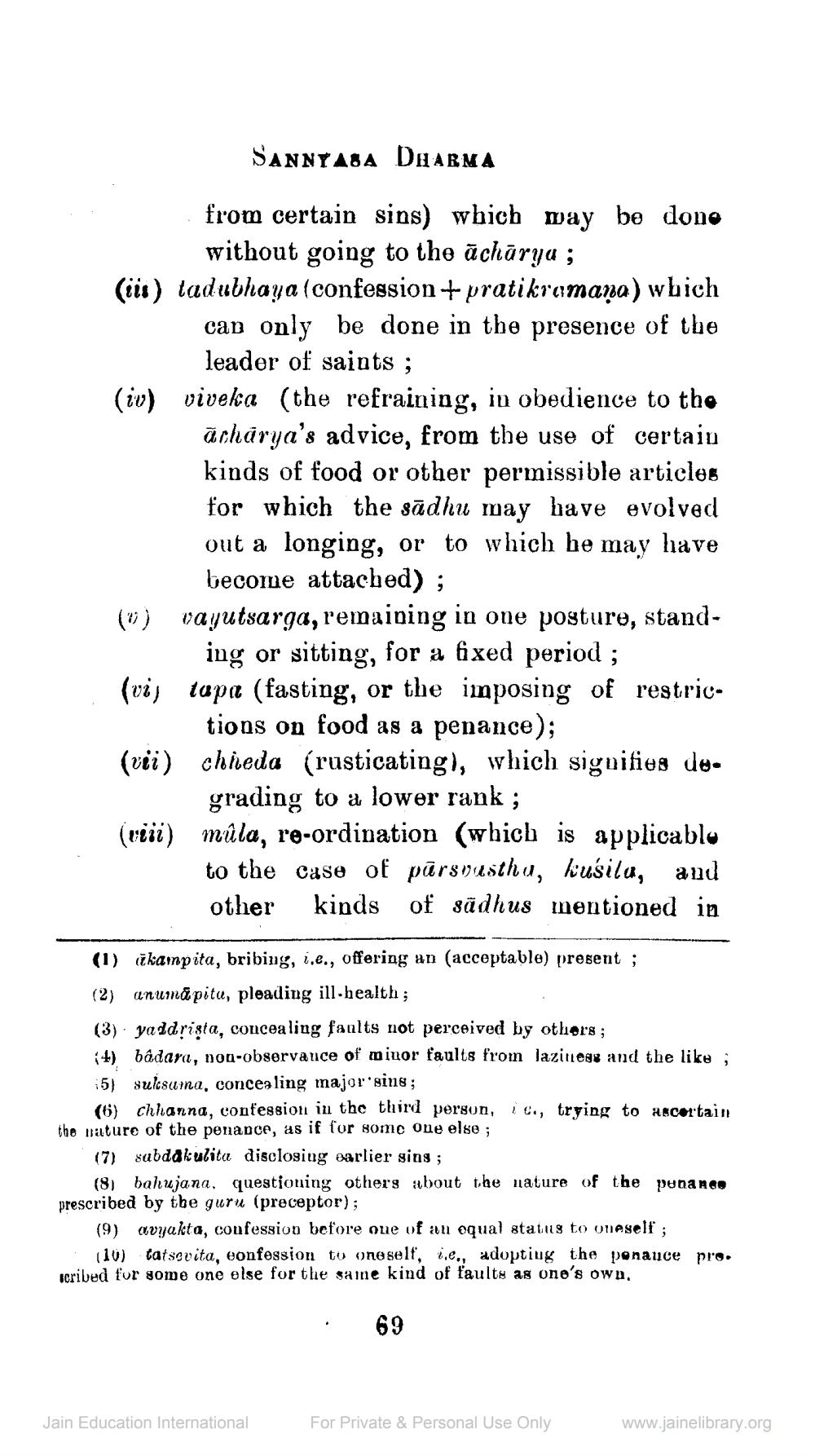________________
SANNYA8A DAARMA
from certain sins) which may be done
without going to the achārya ; (iii) tadubhaya (confession + pratikramana) which
cap only be done in the presence of the
leader of saints ; (iv) viveka (the refraining, in obedience to the
acharya's advice, from the use of certain kinds of food or other permissible articles for which the sādhu may have evolved out a longing, or to which he may have
become attached) ; (0) vayutsarga, remaining in one posture, stand
ing or sitting, for a fixed period ; (vi) tupa (fasting, or the imposing of restric
tions on food as a penance); (vii) chieda (rusticating), which siguifies do.
grading to a lower rank; (viii) můla, re-ordination (which is applicablo
to the case of pārsvusthu, kusila, and other kinds of sädhus mentioned in
(1) ikampita, bribing, i.e., offering an (acceptable) present ;
(2) anumăpitu, pleading ill health;
(3) yaddrista, concealing faults not perceived by others; (1) bâdara, non-observance of minor faults from laziness and the like ; 5) sulsuma, concealing major sing;
(6) chhanna, confession in the third person, ici, trying to ascertain the nature of the penance, as if for some one else ;
(7) sabdakulita disclosing earlier ging;
(8) bahujana, questioning others about the nature of the penance prescribed by the guru (preceptor);
(9) avyakta, confession before oue of an equal status to oneself;
(10) batsovita, confession to oneself, vie., adopting the penance pro. scribed for some one else for the same kind of faults as one's own,
•
69
Jain Education International
For Private & Personal Use Only
www.jainelibrary.org




